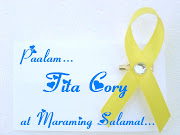 The Philippines proved again it is one of the most dangerous countries for journalists, following the death of at least 24 people in Maguindanao, local and international media organizations said.
The Philippines proved again it is one of the most dangerous countries for journalists, following the death of at least 24 people in Maguindanao, local and international media organizations said.
At least 12 journalists covering the filing of certificate of candidacy of Vice Mayor Ismael “Toto” Mangudadatu, and Mangudadatu’s wife Genalyn were among those killed.
“This incident not only erases all doubts about the Philippines being the most dangerous country for journalists in the world, outside of Iraq, it could very well place the country on the map as a candidate for a failed democracy,” the National Union of Journalists in the Philippines said in a statement.
Authorities have linked the murders to political rival Shariff Aguak Mayor Datu Andal Ampatuan, who has yet to give a statement to media outfits.
Among the journalists reportedly slain were Ian Subang (Dadiangas Times), Leah Dalmacio (Forum), Gina dela Cruz (Today), Marites Cablitas (Today), Joy Duhay (UNTV), Henry Araneta (DZRH), Andy Teodoro (Mindanao Inquirer), Neneng Montaño (formerly of RGMA), Bong Reblando, (Manila Bulletin), Victor Nuñez (UNTV), Macmac Ariola (UNTV), Jimmy Cabillo (UNTV), Bart Maravilla (Bombo Radyo, Koronadal) and lawyers Cynthia Oquendo and Connie Brizuela, according to a statement from University of the Philippines College of Mass Communication (UP CMC), citing reports.
“This is the darkest day in the history of journalism in the Philippines, which, outside of Iraq, has topped the tables of countries where journalists are most at risk in recent years,” said the International Federation of Journalists (IFJ).
Reporters Without Borders also condemned the ongoing culture of impunity in Mindanao, a region more known for extremists and clan wars.
“We have often condemned the culture of impunity and violence in the Philippines, especially Mindanao. This time, the frenzied violence of thugs working for corrupt politicians has resulted in an incomprehensible bloodbath. We call for a strong reaction from the local and national authorities,” Reporters Without Borders said.
Philippines' Center for Media Freedom and Responsibility however reminded journalists to steer clear of any danger.
"We affirm that it is the media’s crucial task to provide the citizenry the information it needs so it can make such decisions as to who to vote for as well as others related to its well-being and safety. We reiterate, however, that no story is worth the life of a single journalist," CMFR said in a statement.
Journalism instructors from the UP CMC meanwhile lambasted the government for its supposed failure to disband local politicians’ private armies.
“The Department of Journalism of the U.P. College of Mass Communication holds the Arroyo government accountable for the continuing state of lawless violence in Maguindanao and other parts of the country,” the UP CMC added in a statement.
They said that “while the massacre was being perpetrated, the President’s chief political adviser was in fact shaking hands with the Ampatuans in Malacañang yesterday, even as the PNP chief for Maguindanao refused to respond when the victims were calling him up by cell phone.”
“We need a strong and urgent response from the Philippine government and the international community,” added Aidan White, IFJ General Secretary.
Subscribe to:
Post Comments (Atom)



Post a Comment